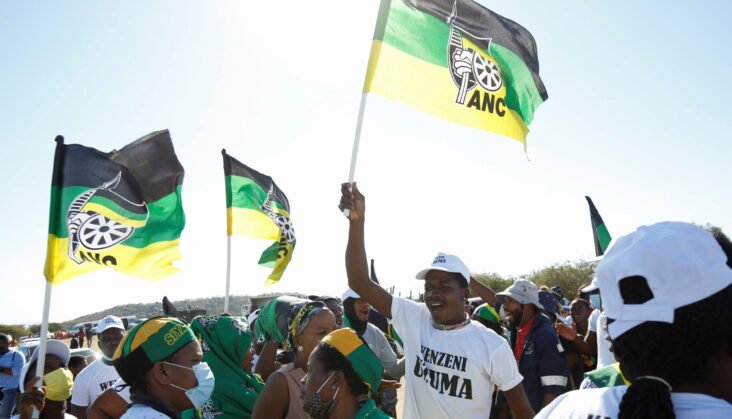[ad_1]
Most of us South Africans consider our constitution – with its enshrined civil and social rights – as a matter of pride, even national identity. After centuries of colonial exploitation and then apartheid, this basic law turned South Africa into a constitutional democracy. That means our constitution is the supreme law of the country – so constitutional supremacy rules, okay?
At the apex of our judicial system, our constitutional court delivers the final verdict on the actions of the executive and the constitutionality of the laws parliament passes. But some in the governing African National Congress (ANC) and the opposition Economic Freedom Fighters bridle at the power of the constitutional court. They say they want a representative democracy rather than a constitutional democracy – as if our constitution somehow blocks our march to a freer and fairer society.
So, South Africa faces a stalemate as we try to consolidate our democracy while the governing ANC says it is unable to implement its policy agenda. In the past decade, South Africa’s public services have fallen apart, blighted by mismanagement, corruption and a lack of policy focus. But politicians have failed to fix the crisis.
Rampant corruption
The government, prompted by public protector Thuli Madonsela, appointed Justice Raymond Zondo to head a judicial commission of enquiry into allegations of state capture and rampant corruption under former president Jacob Zuma. As allegations of corruption were mounting, parliament became complicit in wrongdoing by exonerating the executive.
Each forming one of the three arms of government in South Africa, the judiciary was up against a hostile legislature and a recalcitrant executive. The judiciary took on the role of parliament overseeing the executive. In recent years, the courts have often provided leadership when the political system fails, but that attracts criticism, too. Politicians accuse the judiciary of overreach.
This has come to the fore of the debate. Some senior ANC officials accuse the courts of blocking South Africa’s economic and social transformation. Paradoxically, it is the ANC’s misrule and tolerance of corruption that has derailed its transformation agenda. The key question now is whether the judiciary in South Africa will be able to withstand the growing political pressure.
More and more disputes with political implications are reaching the courts after attempts to negotiate and build consensus have failed. Political arguments become frozen into legal battles. This is drawing the courts into heated, if not toxic, political debates. A big risk facing democracies in the region is that the judiciary’s independence could become compromised because feuding politicians are unable to resolve their own conflicts. And by so doing they are weakening a vital pillar of constitutional rule: an independent judiciary free from political and commercial pressure.
Political tensions are part and parcel of democracy, but deferring difficult decisions and expecting the courts to step in puts undue strain on the judiciary. This is happening across Southern Africa.
Understand Africa’s tomorrow… today
We believe that Africa is poorly represented, and badly under-estimated. Beyond the vast opportunity manifest in African markets, we highlight people who make a difference; leaders turning the tide, youth driving change, and an indefatigable business community. That is what we believe will change the continent, and that is what we report on. With hard-hitting investigations, innovative analysis and deep dives into countries and sectors, The Africa Report delivers the insight you need.
[ad_2]
Source link
